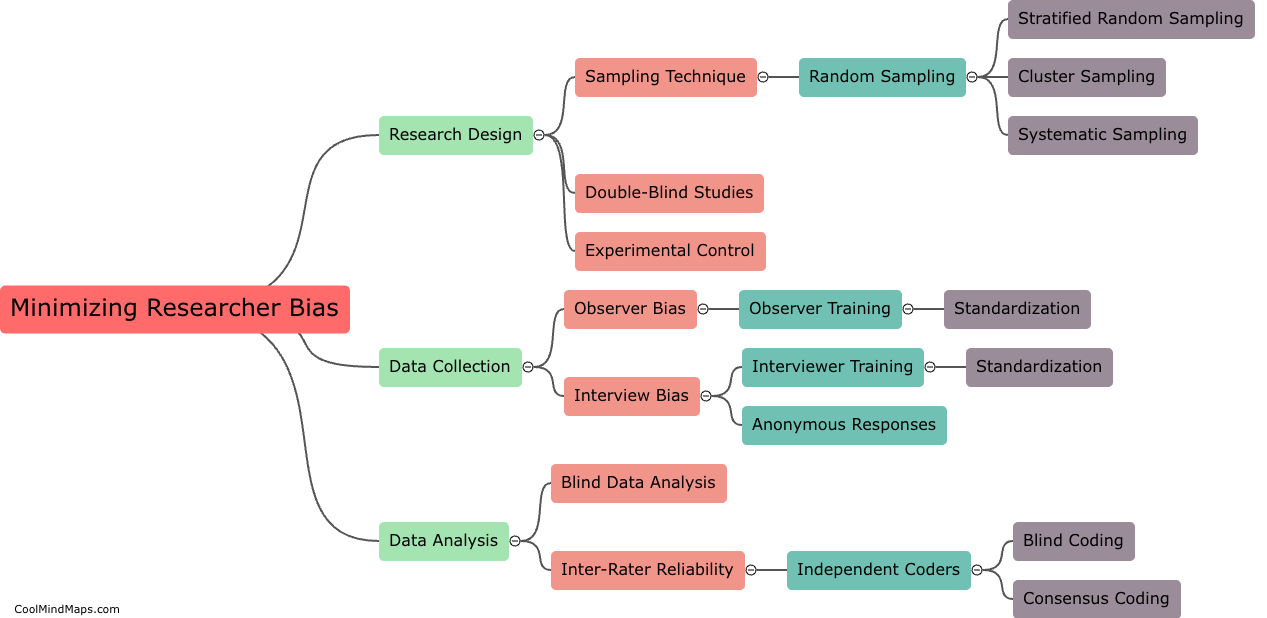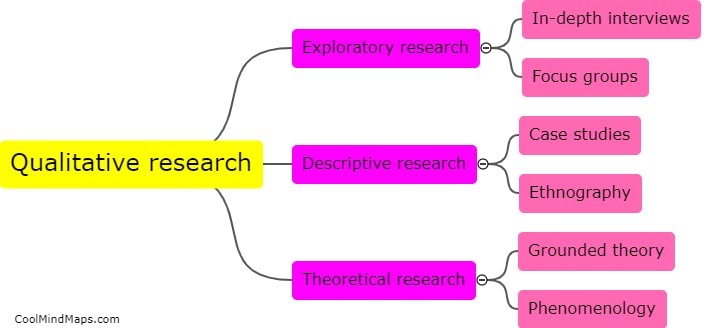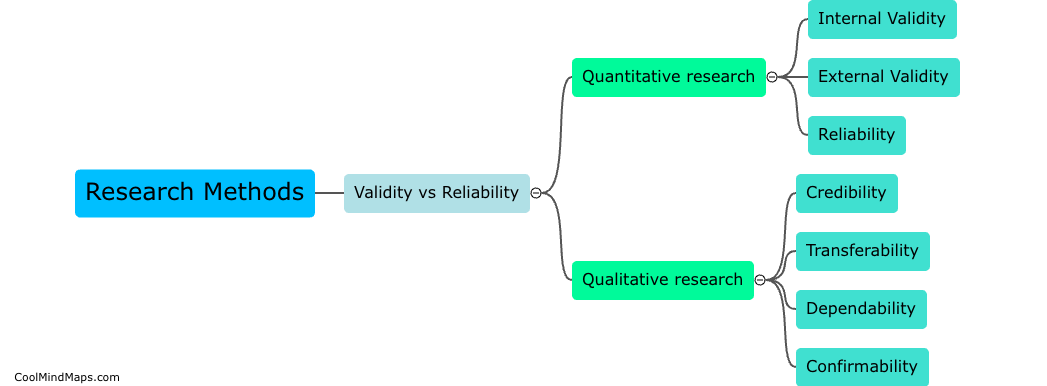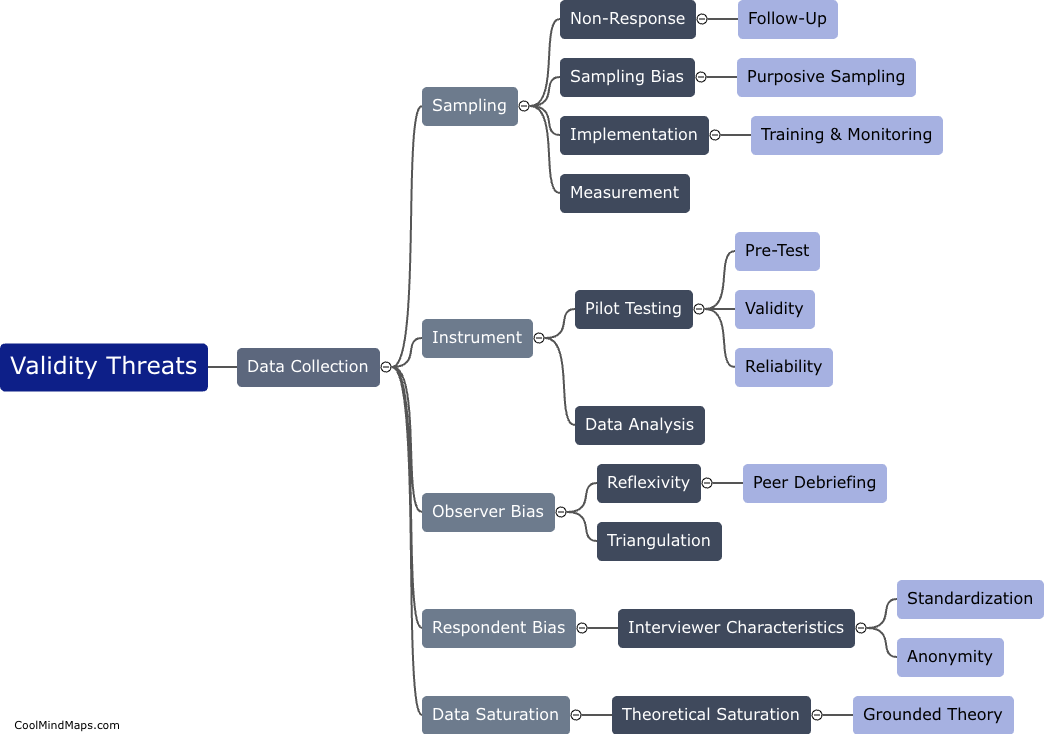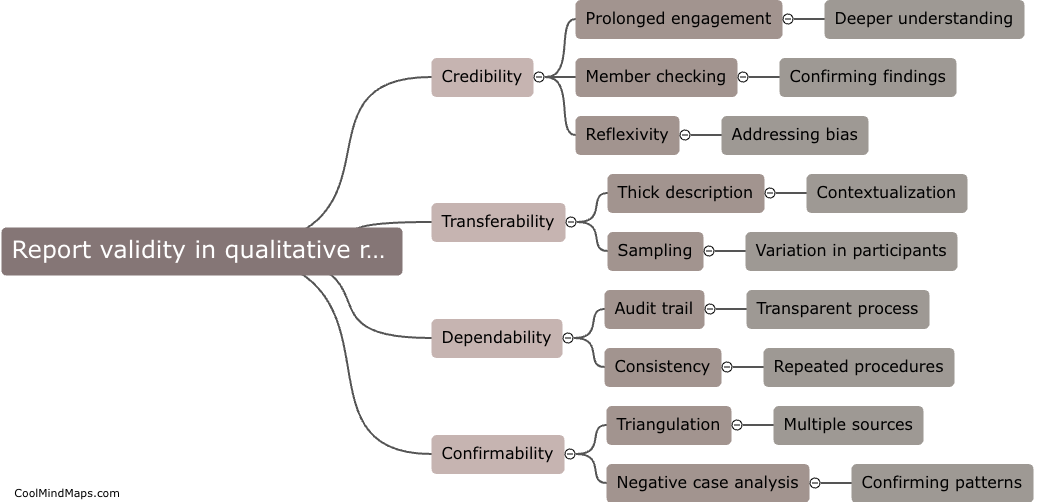What are the common validity threats in qualitative research?
Validity is an essential aspect when it comes to qualitative research. Various validity threats can arise in qualitative research, which can impact the reliability and credibility of the research outcomes. The most common threat is researcher bias, where the researcher's personal beliefs and values affect the research's findings. Another validity threat is participant bias, where participants might provide socially desirable responses to satisfy the researcher. Additionally, there is confirmation bias, which is the phenomenon where the researcher's preconceived notions guide the research process unconsciously. Other common threats to validity in qualitative research include selection bias, reactivity, and participant misrepresentation. Understanding these threats can help researchers take measures to eliminate them and ensure the validity of their research outcomes.
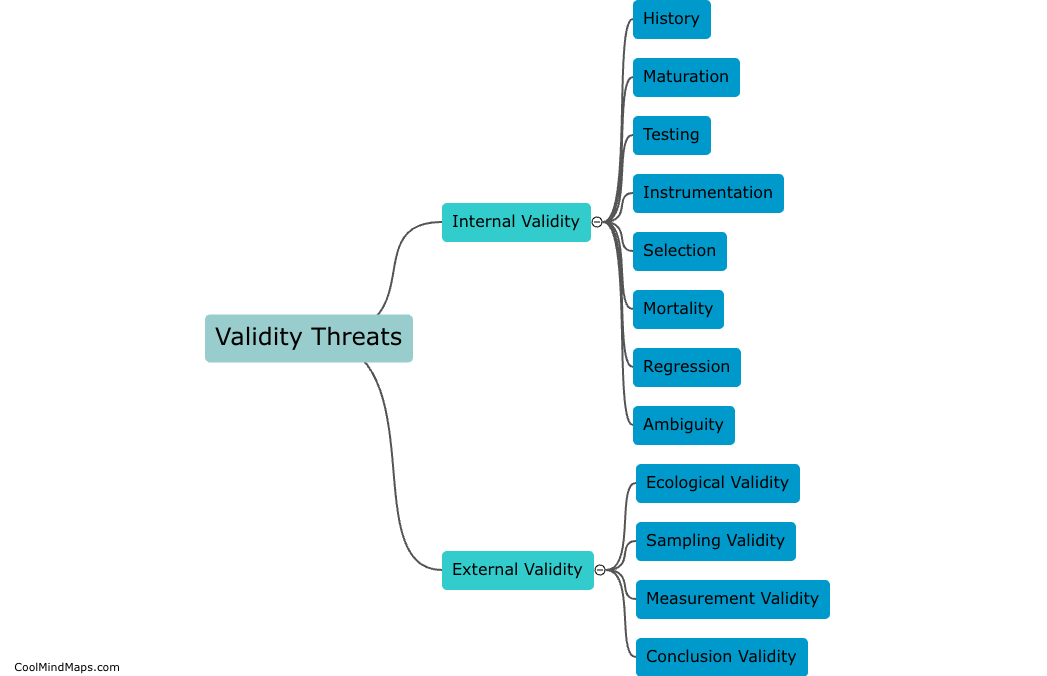
This mind map was published on 20 April 2023 and has been viewed 106 times.




